Download NCERT Solutions for Class 9 Maths Chapter 1 Exercise 1.1, 1.2, 1.3, 1.4, 1.5 and 1.6 of Number Systems in English Medium and Hindi Medium to use online free. NCERT Solutions for Class 9 Maths all chapters solutions in PDF form is also available. Here you have choice to use solutions of chapter 1 number system as online.
NCERT Solutions for Class 9 Maths Chapter 1
If you need solutions in Hindi, Click for Hindi Medium solutions of 9 Maths Chapter 1
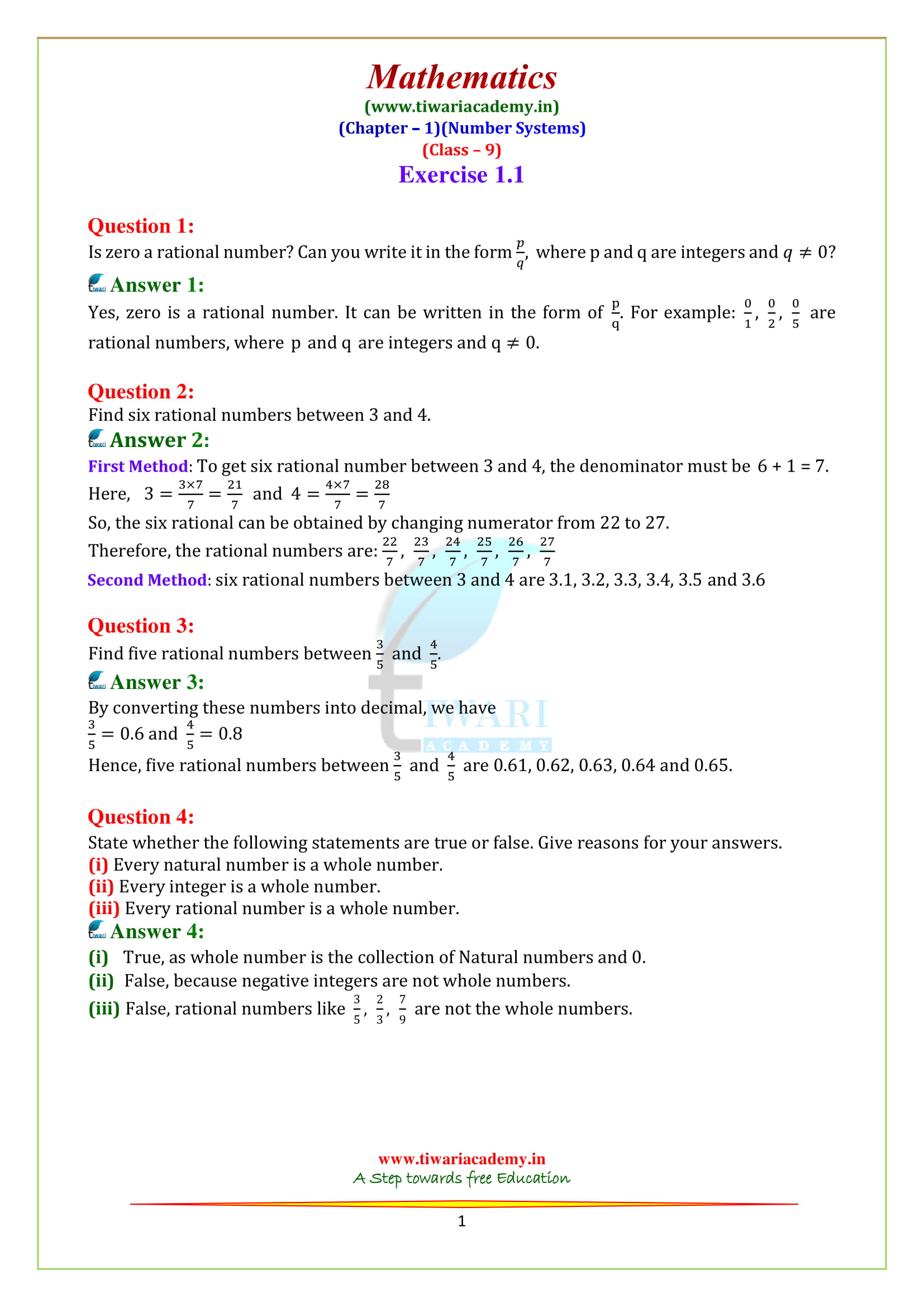
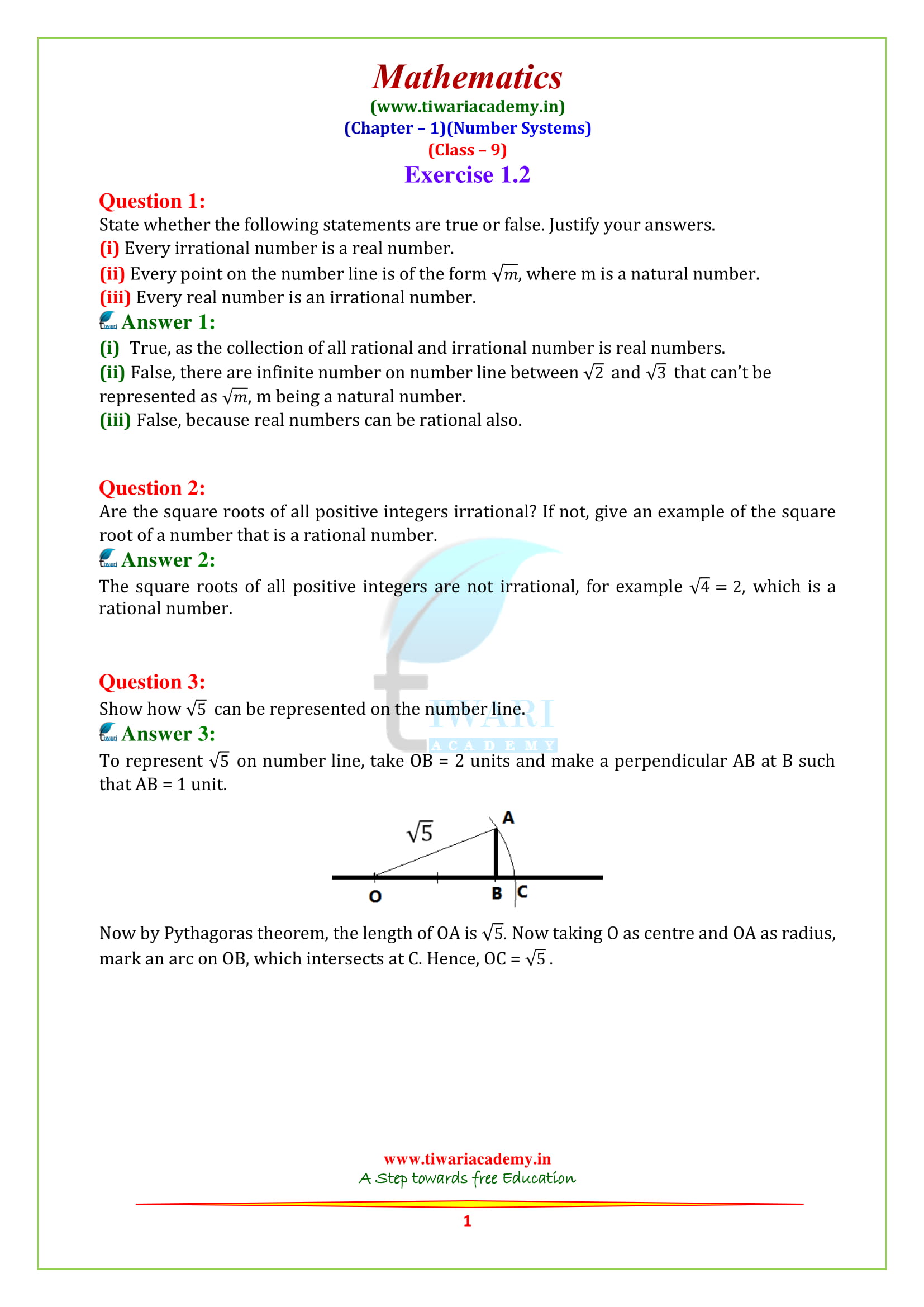
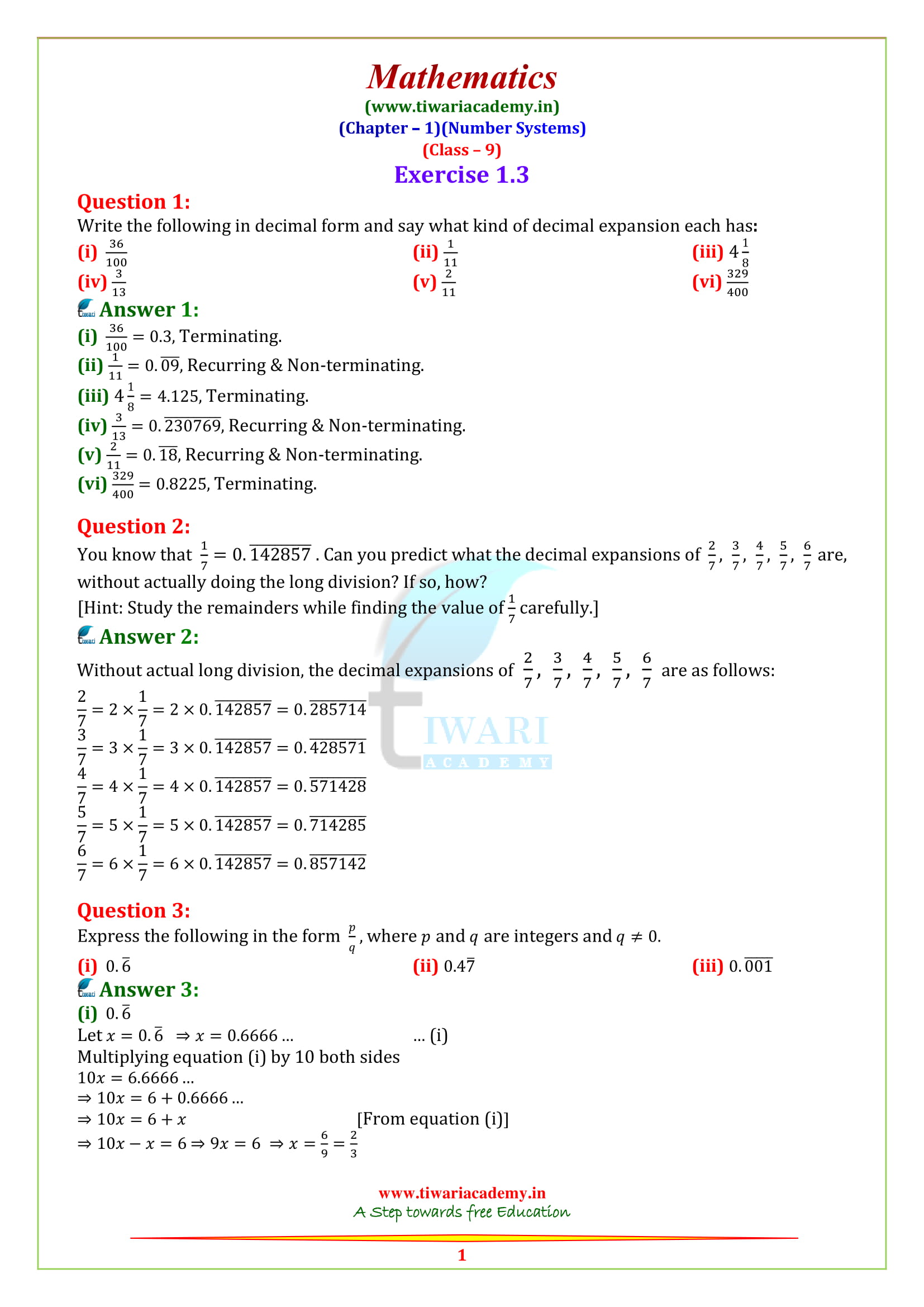
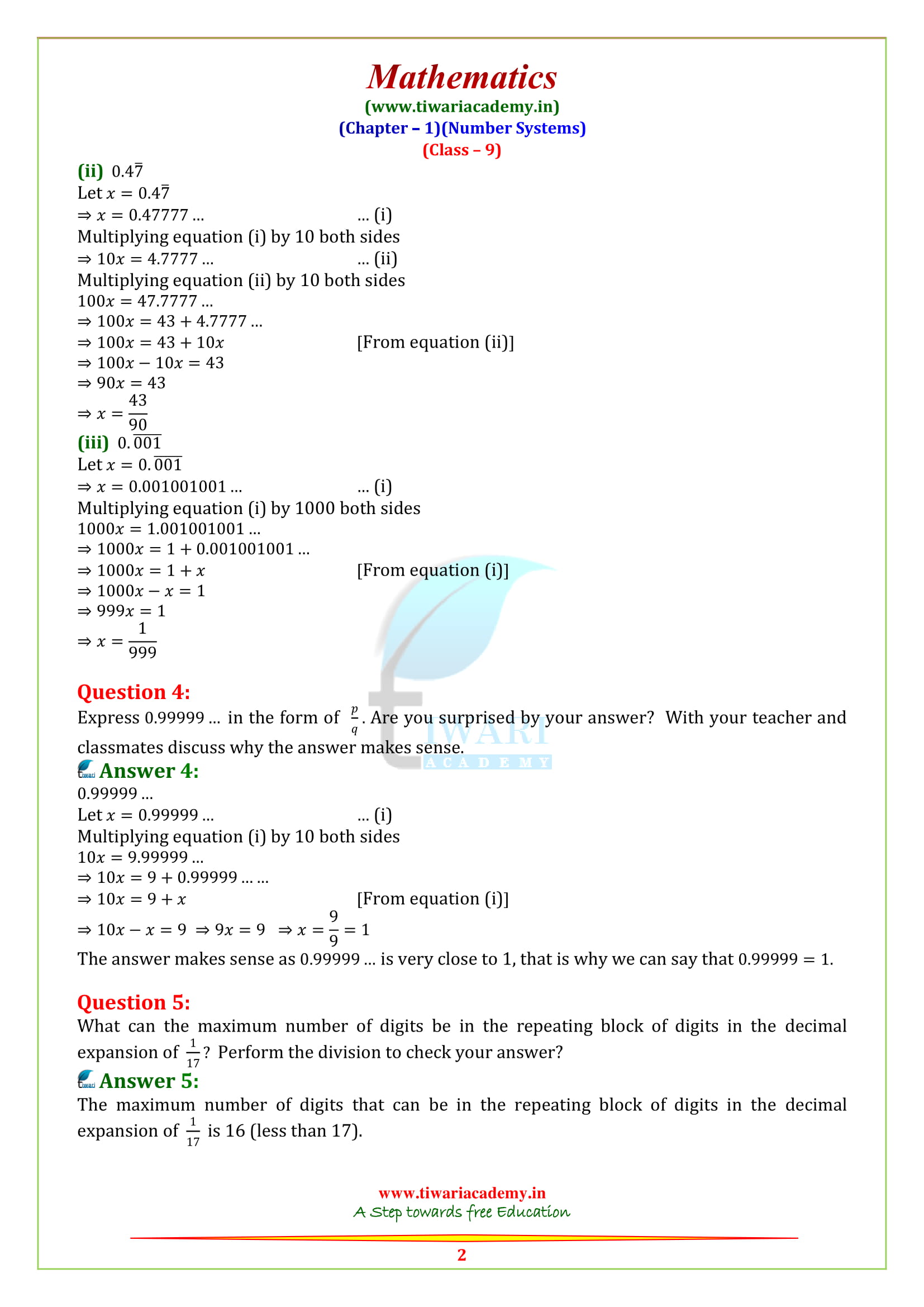
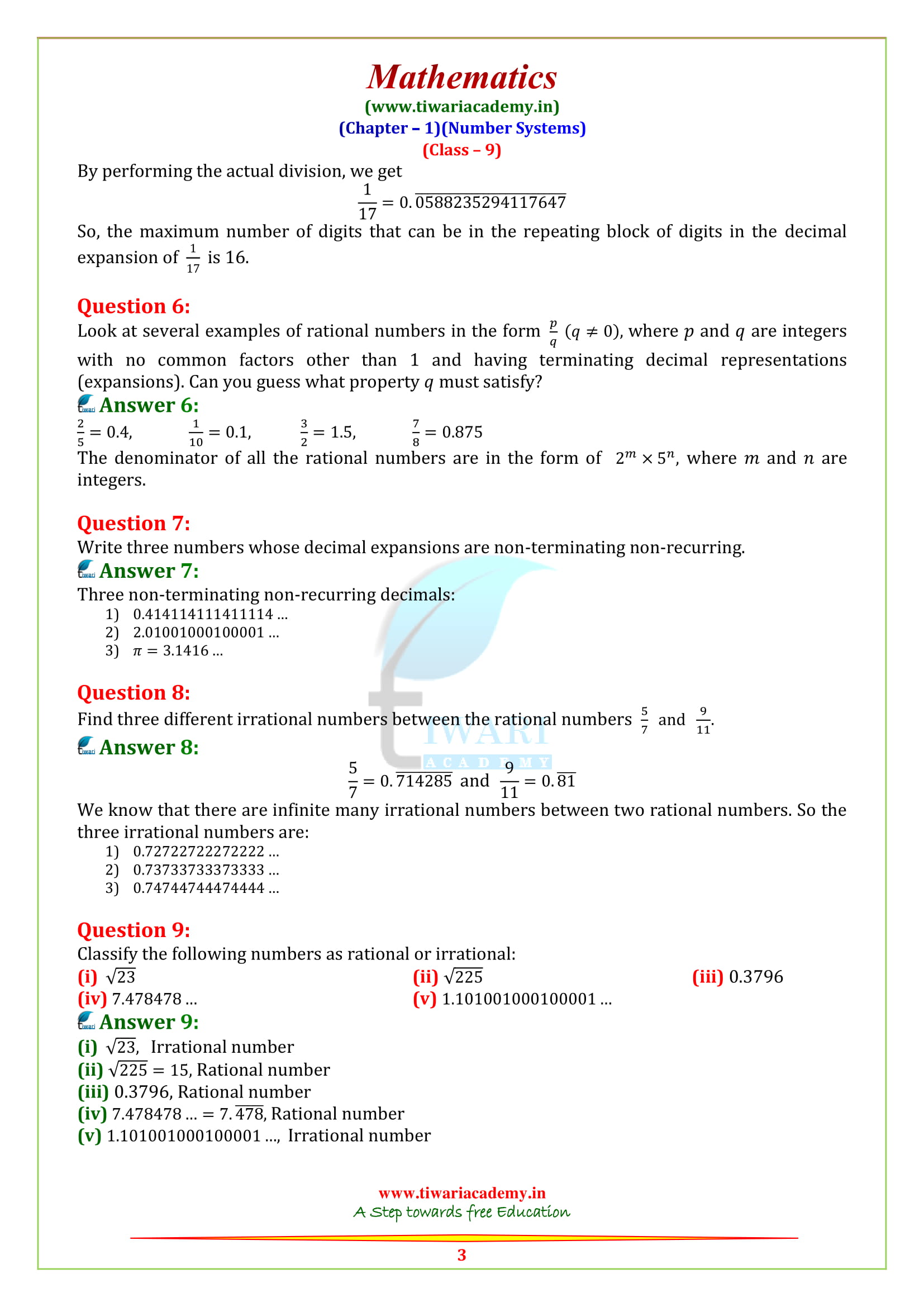
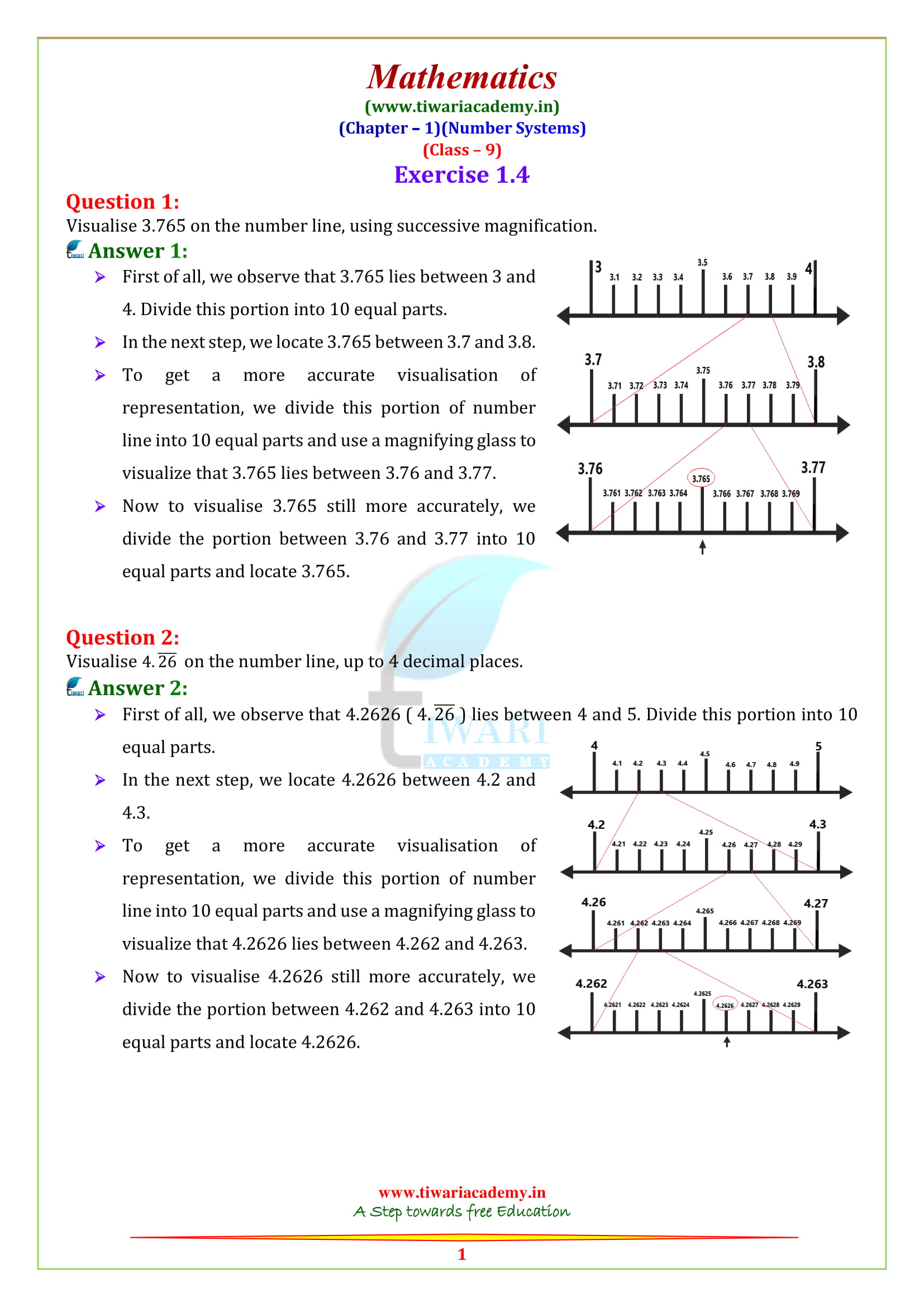
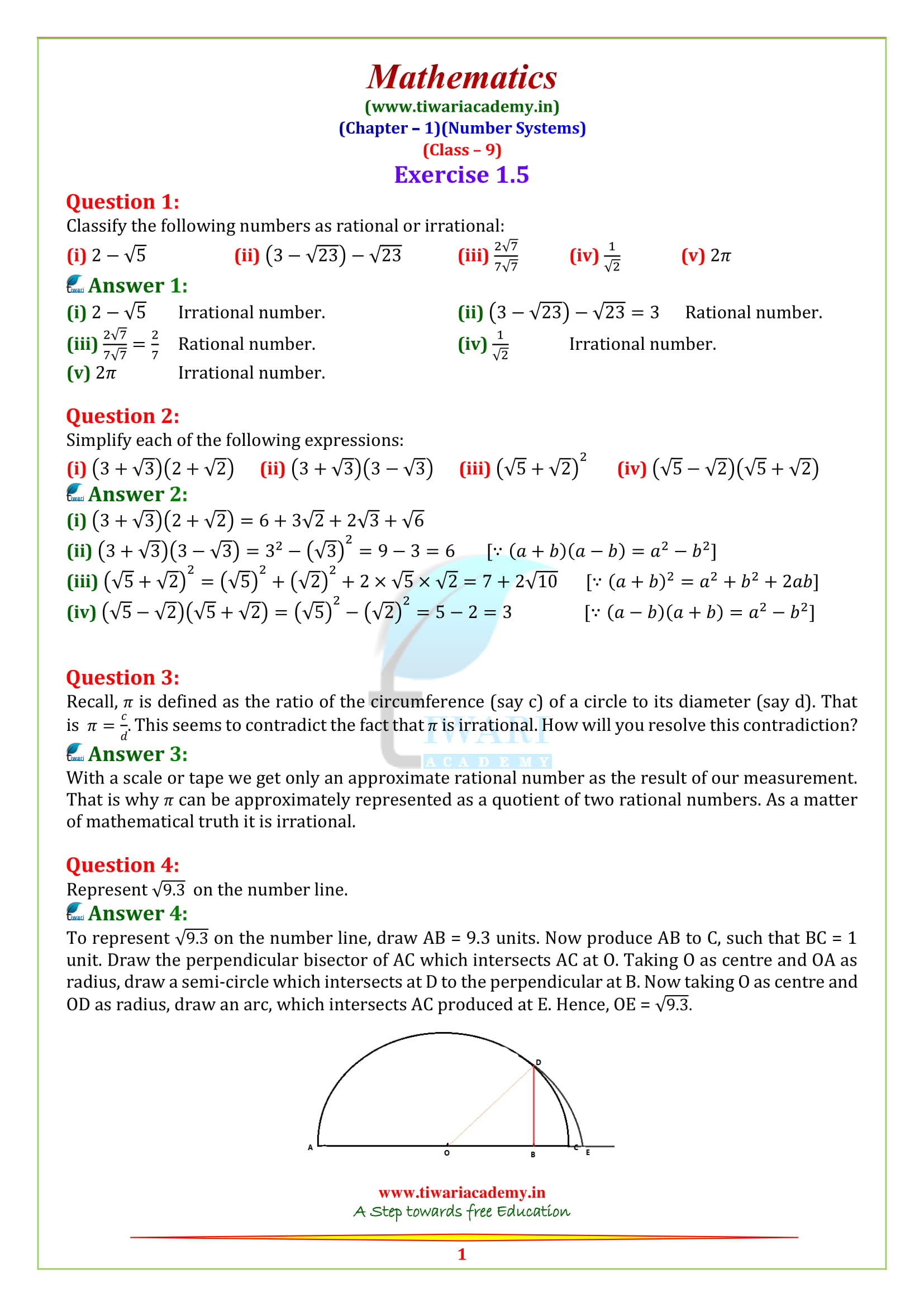
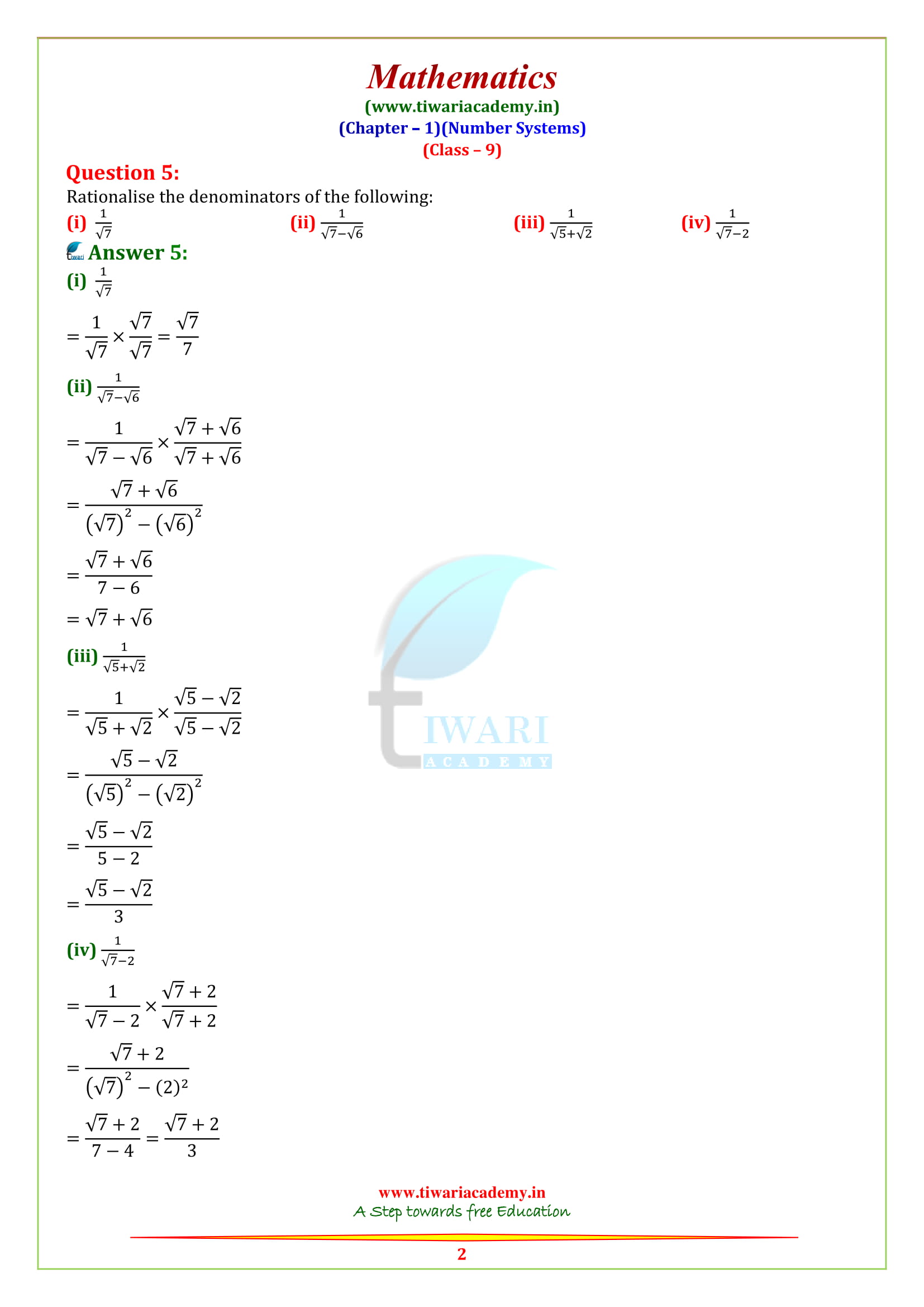
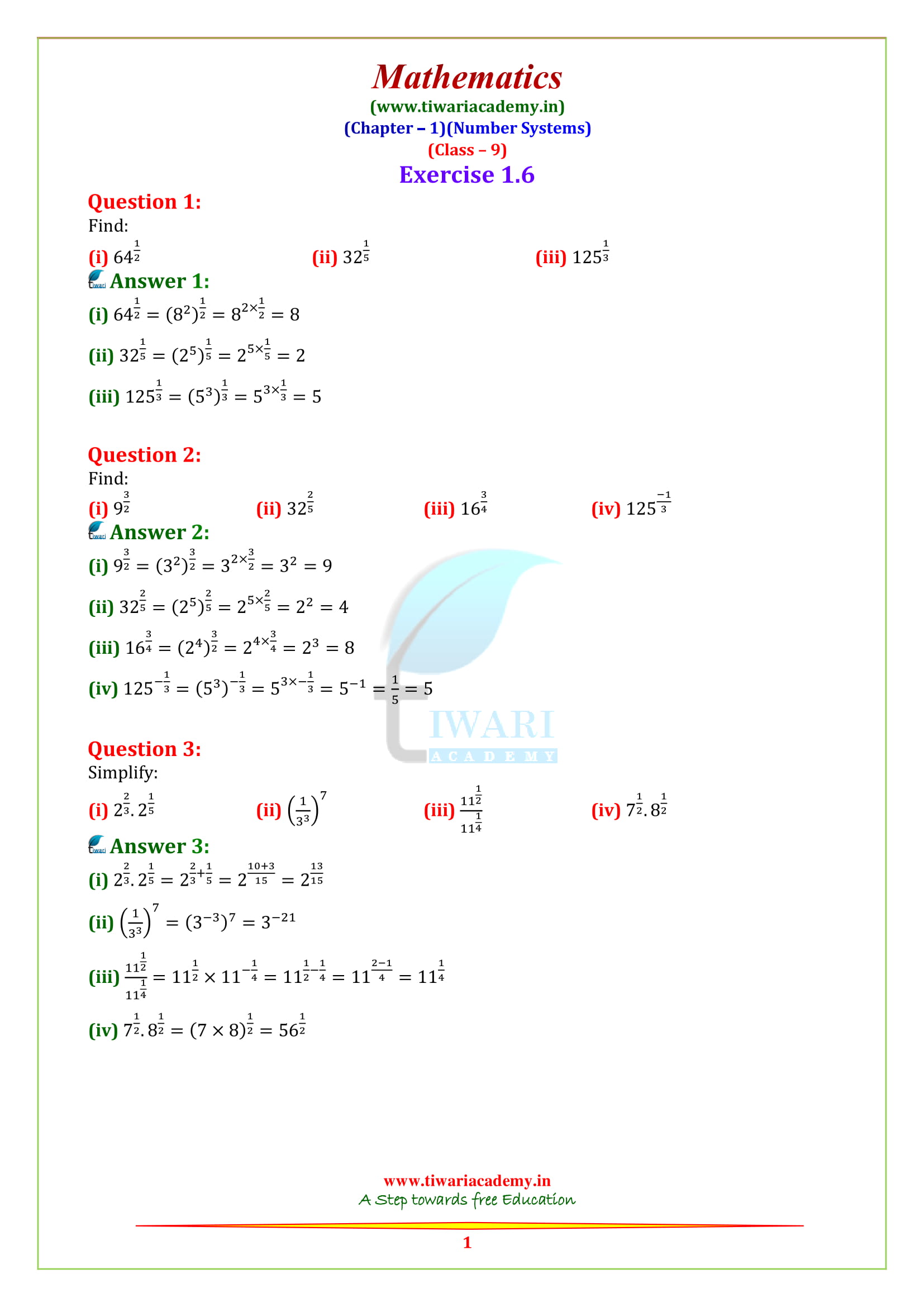
9 Maths Chapter 1 All Exercises in Hindi
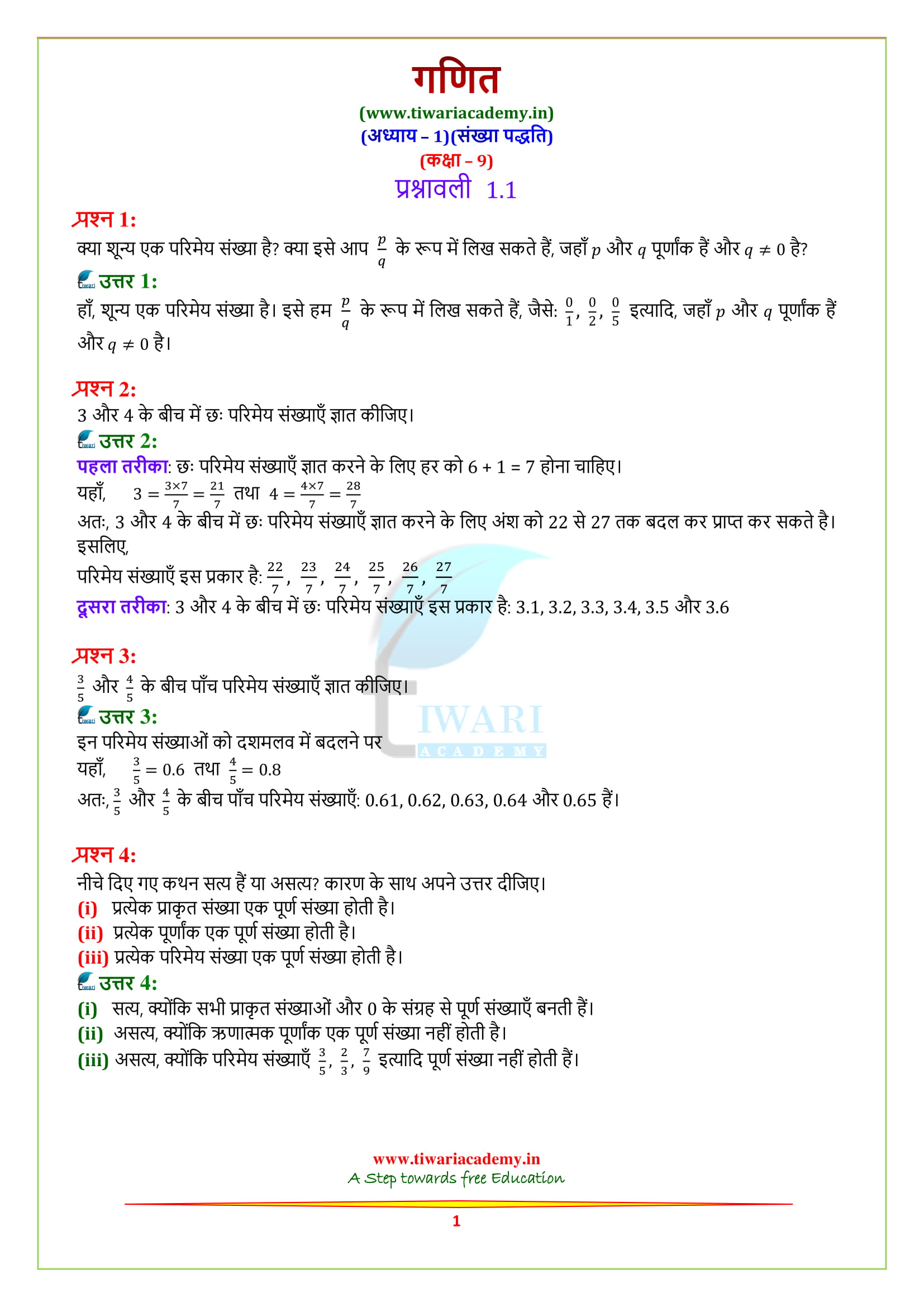
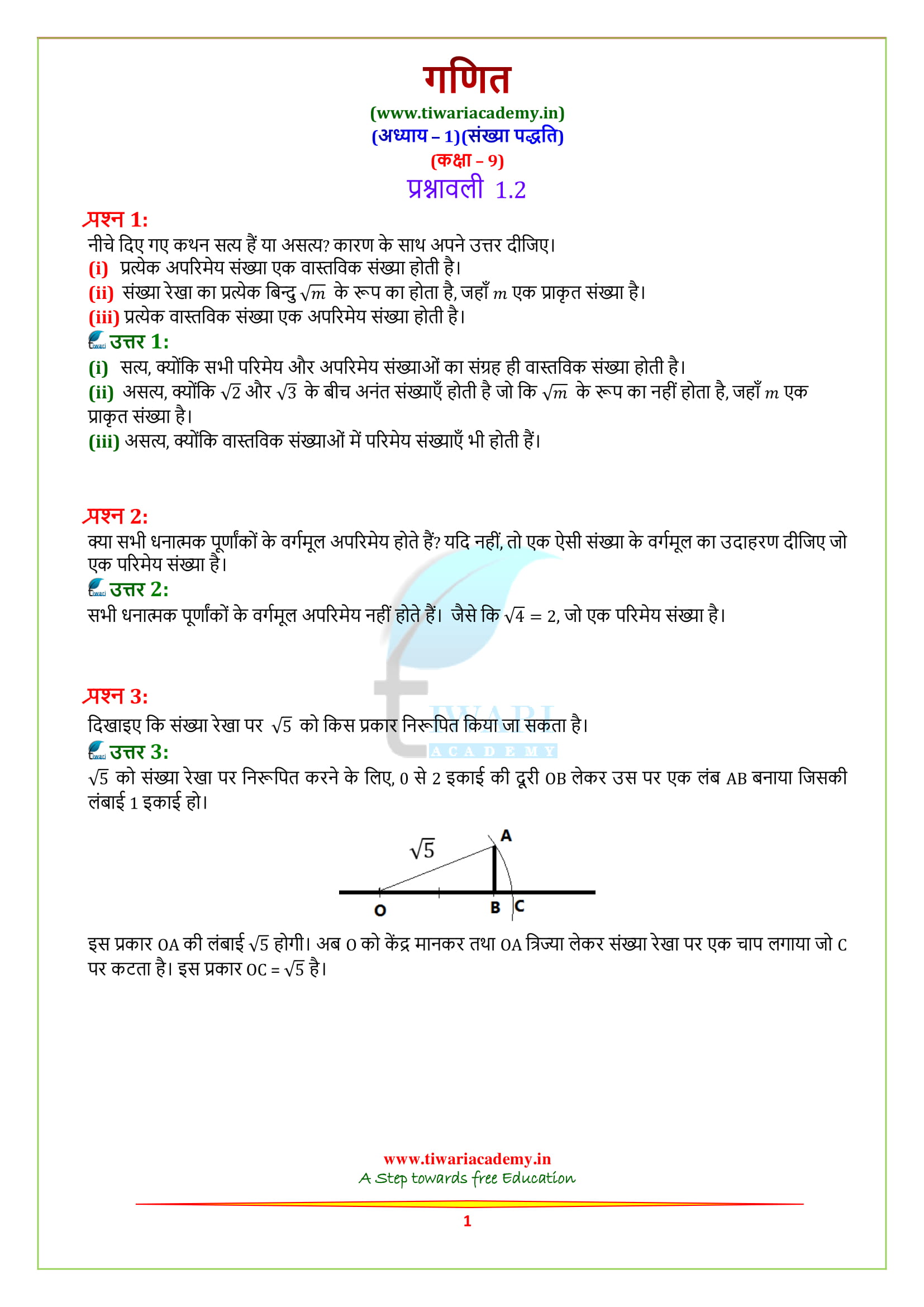
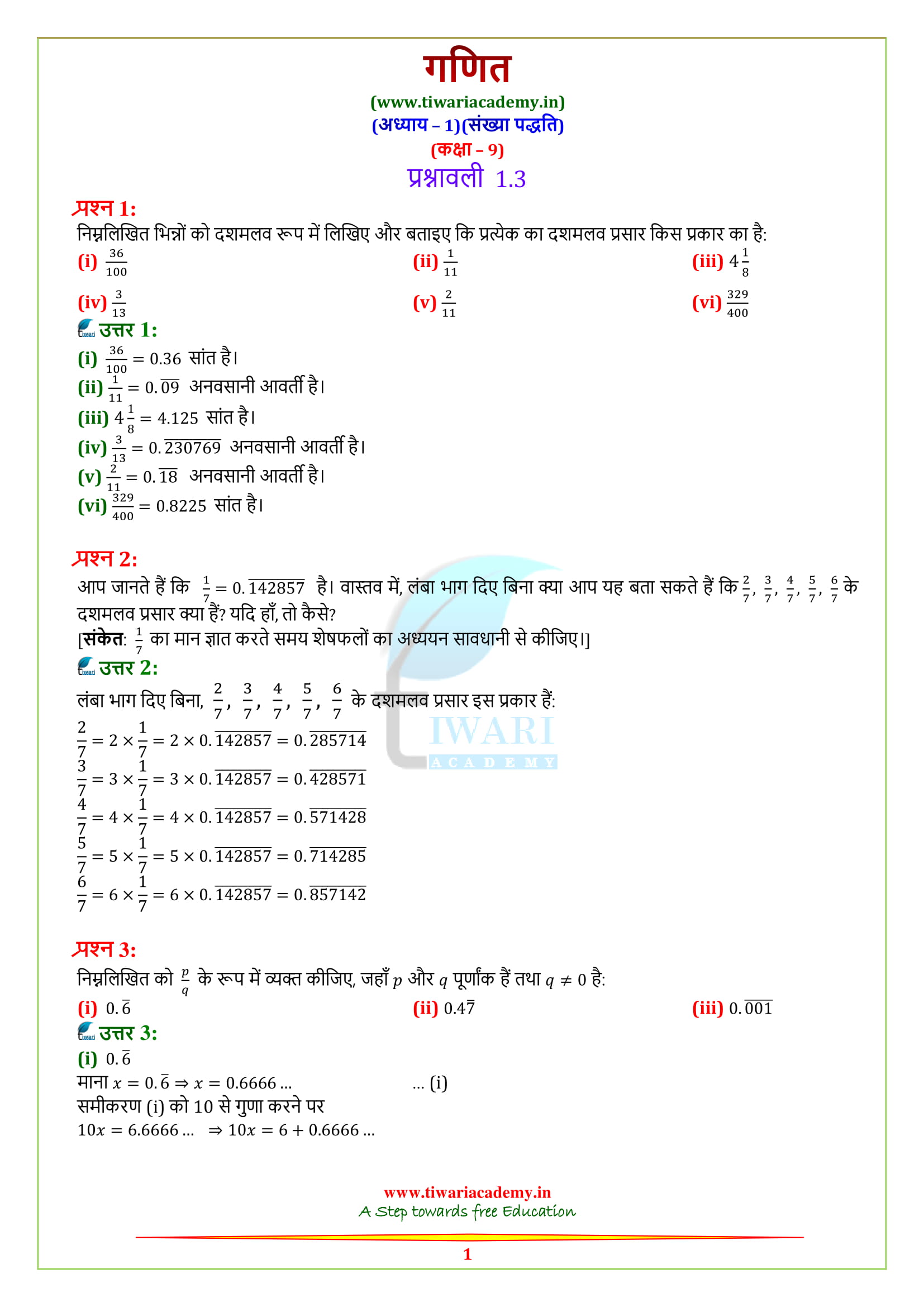
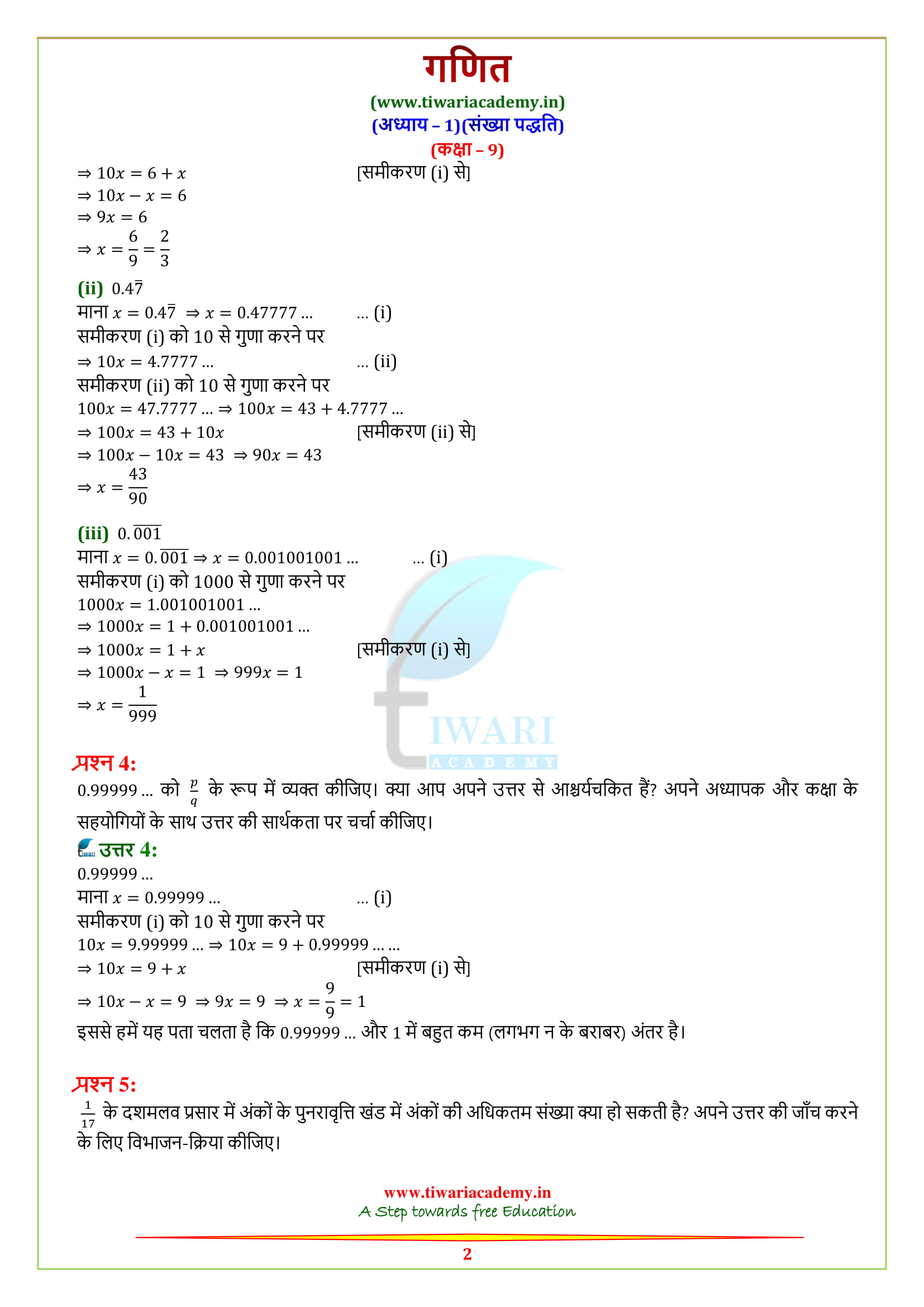
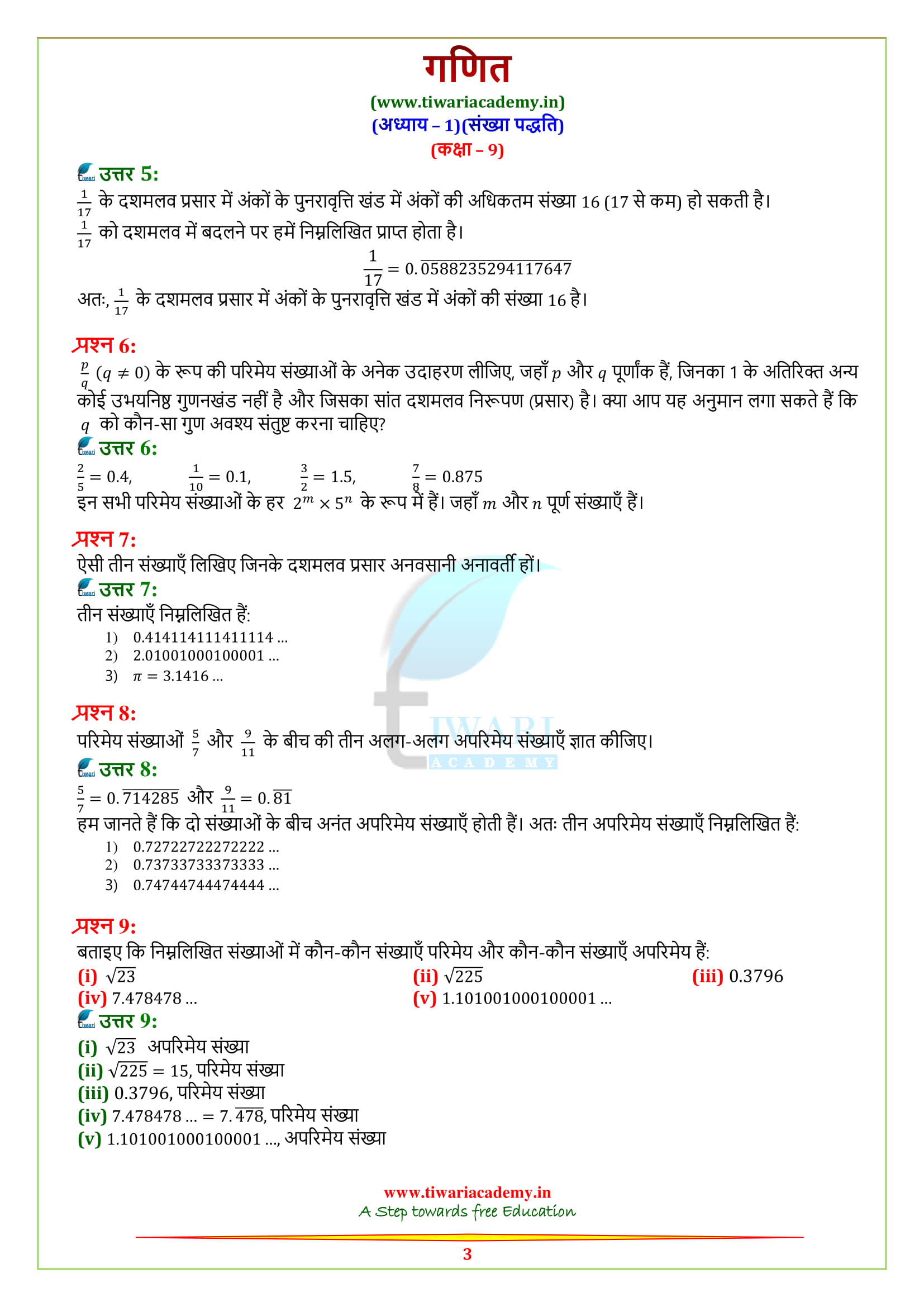
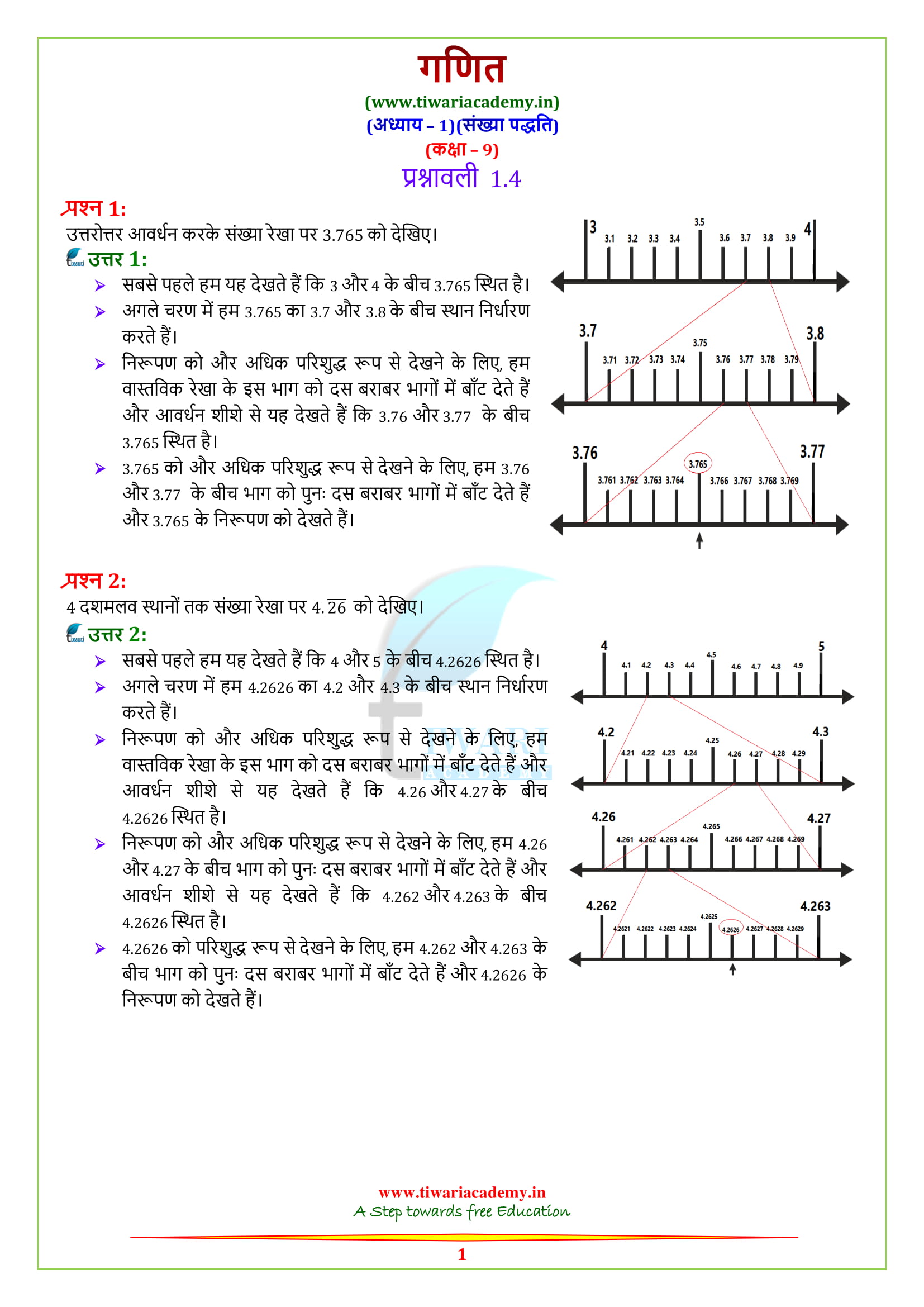
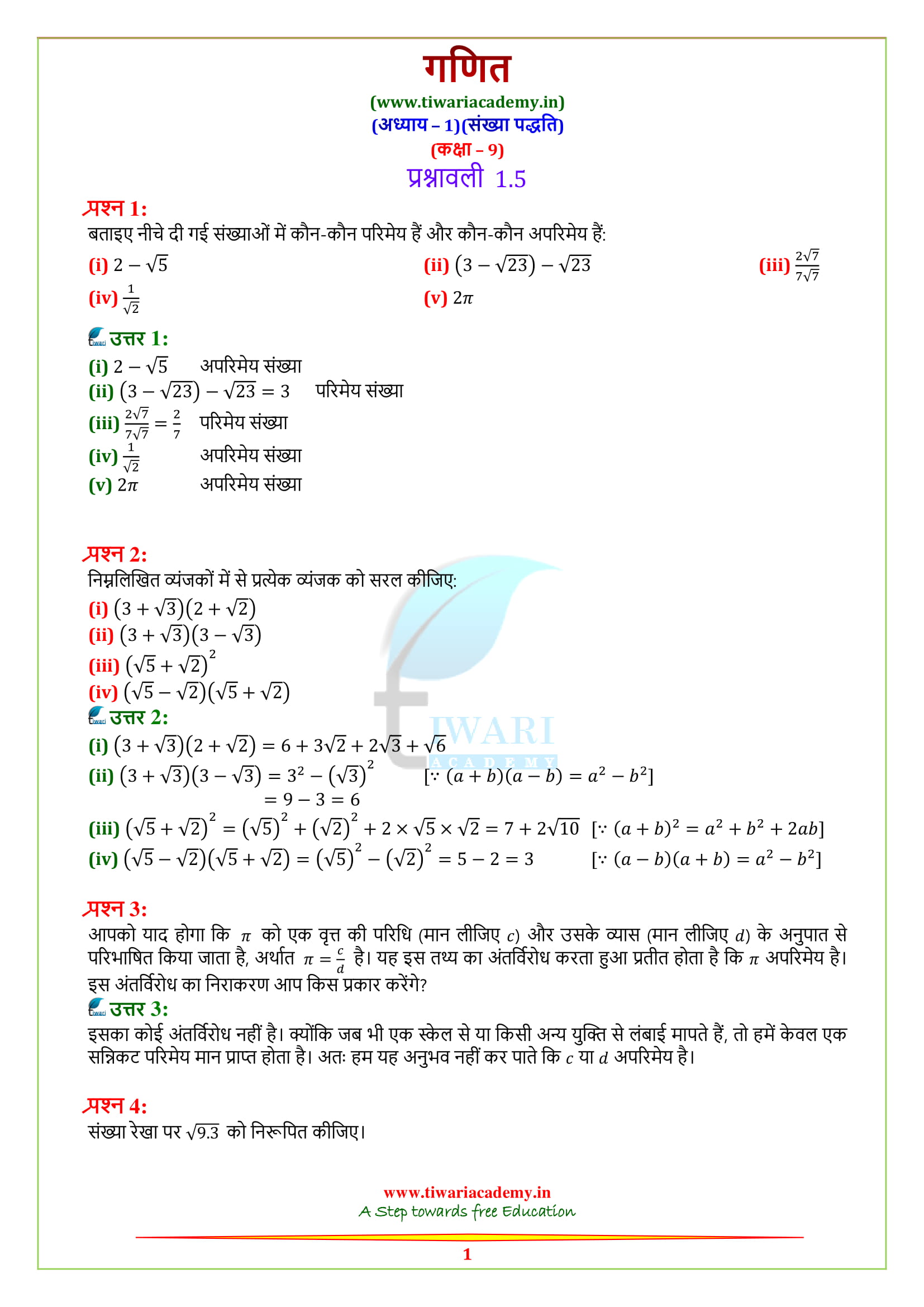
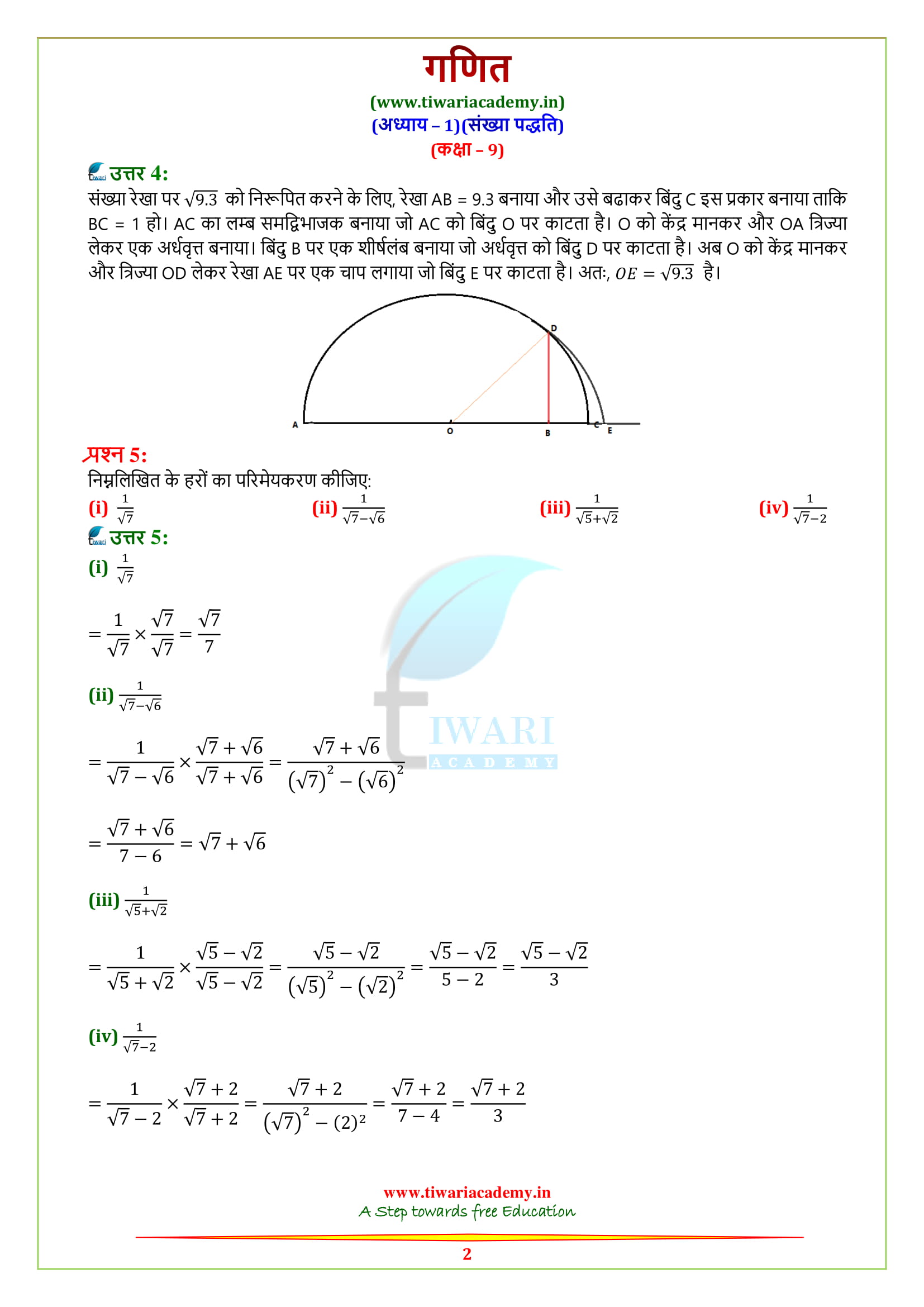
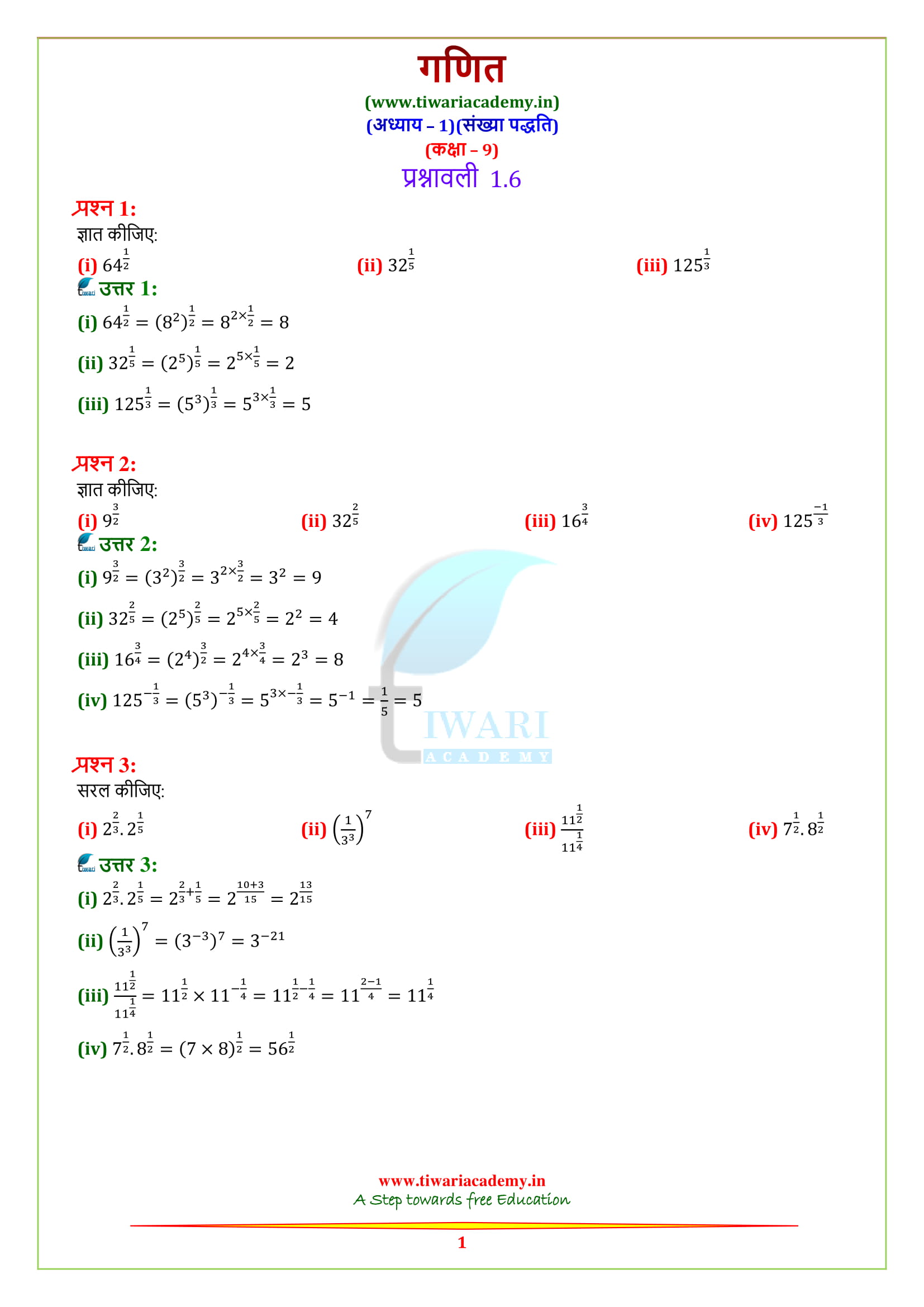
To get the solutions in English, Click for English Medium solutions.
Important Questions – Number Systems
Questions with Answers for Practice
- Write first five whole numbers in p/q form. Where p and q are integers and q ≠ 0. [Answer: 0/1, 1/1, 2/1, 3/1, 4/1]
- Find decimal expansion of 17/8, 3/15, 2/7, 50/3. [Answer: 17/8 = 2.125, 3/15 = 0.2, 2/7 = 0.285714285714…, 50/3 = 16.6666…]
- Find four rational numbers between 2/9 and 3/7. [Answer: 15/63, 16/63, 17/63, 18/63]
- Find decimal form of √23 and √24 upto 3 decimal places. [Answer: √23 = 4.795 and √24 = 4.898]
- Find one Irrational and one rational number between 2 and √5. [Answer: 2.12, 2.010010001…]
- Write two numbers whose decimal expansions are terminating. [Answer: 7/5, 7/2]
- What can be the maximum number of digits in the repeating block of digits in the decimal expansion of 5/7? [Answer: 6]
- Write two numbers whose decimal expansions are non-terminating non-repeating (non-recurring). [Answer: √2, √3]
- Find two Irrational numbers between 2017 and 2018. [Answer: 2017.101001000…, 2017.202002000…]
- Representation – 7/5 on the number line.
- Represent √5 on the number line.
- Represent 3 + √2.6 on the number line.
- Insert two Irrational numbers between 2/3 and 3/2. [Answer: 0.909009000…, 1.101001000…]
- Which of the following rational numbers will have a terminating decimal expansion or a non-terminating repeating (recurring) decimal expansion? (i) 135/50 (ii) 4/11 (iii) 8/7
- Classify the following numbers as terminating decimal or non-terminating recurring decimal or non-terminating non-recurring decimal: (i) 0.1666…. (ii) 0.250 ……. (iii) 1.01001000100001…. (iv) 0.27696 (v) 2.142857142857…. (vi) 0.3 (vii) 0.2359872785…. Classify these given numbers also as Rational or Irrational numbers. [Answer: (i) Terminating Decimal (ii) Non Terminating Repeating Decimal. (iii) Non-Terminating Repeating Decimal (iv) Terminating Decimal (v) Non-Terminating Repeating Decimal, (vi) Terminating Decimal (vii) Terminating Decimal]
- Express the following numbers in the form p/q, where p and q are integers and q ≠ 0. (i) 0.0875 (ii) 2.123456789 (iii) 0.181818…. (iv) 0.437373737… (v) 3.6511111….
- If x = 9 – 4√5, then find (i) x + 1/x (ii) x² + 1/x²
- Every rational number is
(A) a natural number (B) an integer (C) a real number (D) a whole number [Answer: D] - Decimal representation of a rational number cannot be
(A) terminating (B) non-terminating (C) non-terminating repeating (D) non-terminating non-repeating [Answer: D] - The product of any two irrational numbers is
(A) always an irrational number (B) always a rational number (C) always an integer (D) sometimes rational numbers, sometimes irrational [Answer: D] - Let x and y be rational and irrational numbers, respectively. Is x + y necessarily an irrational number? Give an example in support of your answer.
- Show that 0.142857142857… = 1/7

